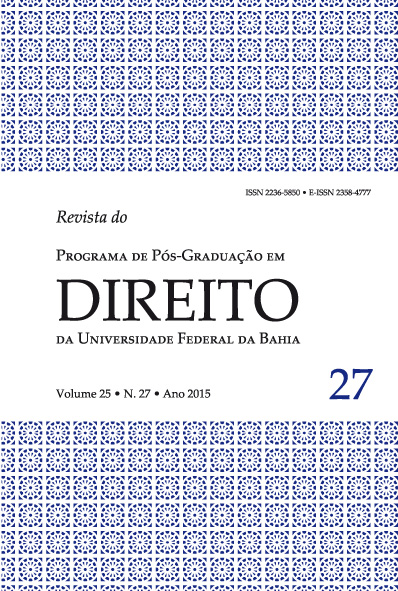O direito à saúde no brasil: uma análise dos impactos do golpe militar no debate sobre universalização da saúde / The Right to Health in Brazil : An analysis of the impact of the military coup in the debate on universalization of Health
DOI:
https://doi.org/10.9771/rppgd.v25i27.15209Abstract
This article seeks to understand how the military dictatorship
established in 1964 influenced the discussion and the public
health policies aimed towards the universalization of health in Brazil.
The literature on the subject was analyzed in order to retrace the condition
of the debate on the universalization of the access to health services
in the period prior to 1964. The paper also lists the public health
policies adopted by the military regimen, in an attempt to understand
if there had been any continuity to the ideas of former governments.
On one hand, there had been developments concerning the scope of
public services, by the creation of public policies during the military
government. However, many of these developments were aimed towards
the private sector and based on curative medicine. On the other
hand, on 1963, during the III National Health Conference, some elements
which were essential to the creation of SUS after the 1988’s
Constitution stood out.
Downloads
Downloads
Published
How to Cite
Issue
Section
License
1. Autores mantém os direitos autorais e concedem à revista o direito de primeira publicação, com o trabalho simultaneamente licenciado sob a Licença Creative Commons Atribuição 4.0 Internacional que permite o compartilhamentodo trabalho com reconhecimento da autoria e publicação inicial nesta revista.
2. Autores têm autorização para assumir contratos adicionais separadamente, para distribuição não-exclusiva da versão do trabalho publicada nesta revista (ex.: publicar em repositório institucional ou como capítulo de livro), com reconhecimento de autoria e publicação inicial nesta revista.
3. Autores têm permissão e são estimulados a publicar e distribuir seu trabalho online (ex.: em repositórios institucionais ou na sua página pessoal) a qualquer ponto antes ou durante o processo editorial, já que isso pode gerar alterações produtivas, bem como aumentar o impacto e a citação do trabalho publicado

